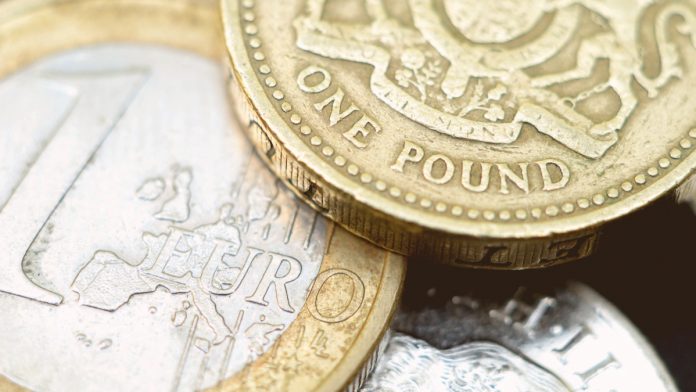- Pound (GBP) is inching higher ahead of GDP data
- The pound rose yesterday as concerns over a pre-Christmas lockdown eased
- Euro (EUR) falls as consumer confidence tumbles
- Omicron headlines could drive movement amid a quiet calendar
The Pound Euro (GBP/EUR) exchange rate is edging higher building on gains from the previous session. The pair settled +0.34% higher on Tuesday at €1.1748 after falling as much as €1.1697 earlier in the session. At 05:45 UTC, GBP/EUR trades +0.02% at €1.1759.
The pound rebounded in the previous session after losses earlier in the week. News that the British government would wait for more data on hospitalisations and deaths from Omicron before taking a decision to impose tighter lockdown restrictions helped to lift the pound.
Also supporting the pound was an announcement from UK Chancellor Rishi Sunak offering £1 billion to firms the hardest hit by Omicron. The latest wave of COVID is hammering the country’s hospitality sector as people worked from home and cancelled Christmas parties and get togethers.
For now, there is no legal restriction on businesses in the hospitality sector even as COVID cases surged by 60% in a week.
Attention will now turn back to the UK economic calendar with the release of UK third quarter GDP data. This will be the final estimate. Analysts are expecting growth of 1.3% quarter on quarter, down from 5.5% in the previous quarter as rising COVID numbers and pingdemic dampened economic growth.
The Euro came under pressure after GFK data revealed that consumer confidence in Germany tumbled to -6.8, down from -1.8 in the previous month. Household morale tumbled as COVID cases rise steeply and as inflation jumped to a 30 year high.
Eurozone consumer confidence was also significantly worse in December, dropping to a worse than expected -8.3, down from -6.8. Analysts had expected consumer confidence to decline to -8. This marked a seven month low reflecting Omicron fears combined with surging inflation.
Today there is no high impacting Eurozone economic data for investors to digest. Therefore the euro could struggle for direction or remained glued to the latest Omicron developments.





